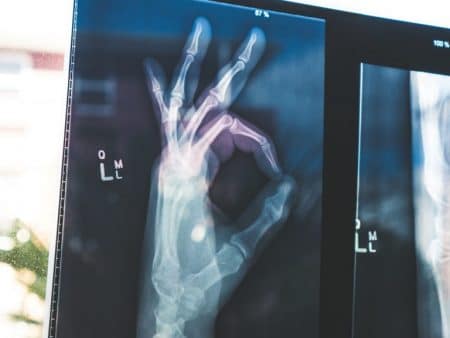Depression in Middle-Aged Men – Causes, Symptoms, and Treatment

Research shows that depression can affect anybody, but some demographics are more prone to it than others. For instance, middle-aged men go through depression in high numbers. Men and women respond to the same types of treatments for depression. However, the way men and women experience and deal with the disease can be markedly different between the genders. [*1]
What Can Cause Depression?
Depression in middle-aged men can strike for many reasons. There may be marital issues, death of a loved one, stress at work, and money problems, to name just a few. There could also be genetic factors at play, which can you put you more at risk of depression.
If there is evidence of depression in your family history, then you are statistically more likely to get the disease.
Genetics are complex, and studies are inconclusive in pinpointing the specific genetic source responsible for depression. The most likely scenario is that a range of genetic factors combines to increase the likelihood of depression. [*2]
Research has shown that substance abuse may play a part in causing depression. More than 30% of people with a known history of substance abuse are diagnosed with clinical depression. [*3]
How to Know if you Have depression
Depression can manifest with many different symptoms, but in general, you may be suffering from depression if you experience:
- Feeling tired for long periods,
- A desire to use alcohol or drugs to change your mood,
- Trouble sleeping
- Irritability,
- A loss of interest in family, friends, and hobbies,
- Thoughts of suicide
- Overeating
- A decrease in sex drive, and
- Aches, pains, and headaches for no apparent reason.
Men are also less likely to talk about depression than women and will often suffer in silence. Hiding their feelings may be why more middle-aged men will attempt suicide. Statistically, men are also more likely to succeed in their suicide attempts.
Removing the Stigma
Without communication, it’s impossible to treat depression, which is why it’s important to educate society against the stigma associated with the disease. Men will avoid talking about depression for fear of being considered emotionally weak.
Society conditions males to appear tough and in control. Admitting to depression goes against the image they are projecting of themselves onto the world.
Many middle-aged men may even believe themselves to be weak because they are suffering from depression. As a result, they will attempt to hide how they feel from the world and the people closest to them.
Treating Depression in Middle-Aged Men
There is no denying that depression is a real mental health challenge which can affect anyone. It is not a disease which can be treated through will power alone, but it is one of the most treatable mental health conditions.
Educating middle-aged men about depression and encouraging communication are the first steps in reducing the suicide casualties from this debilitating disease.
Treatment can start with your GP or with a meant health practitioner. In most circumstances, your family doctor will recommend a physical check-up so they can rule out age-related disorders and other illnesses.
Depression can be treated successfully through talk therapy or psychotherapy. The therapist will guide you through your thoughts and feelings to help you identify what may be contributing to your symptoms. Education on changing negative thought patterns into positive ones can also be effective. [*4]
Other measures used in treating depression include support groups such as those which help you cope with losing a loved one. Working through your issues as part of a group helps you to realize that you are not alone in your feelings, as well as be a source of reliable advice and encouragement.






